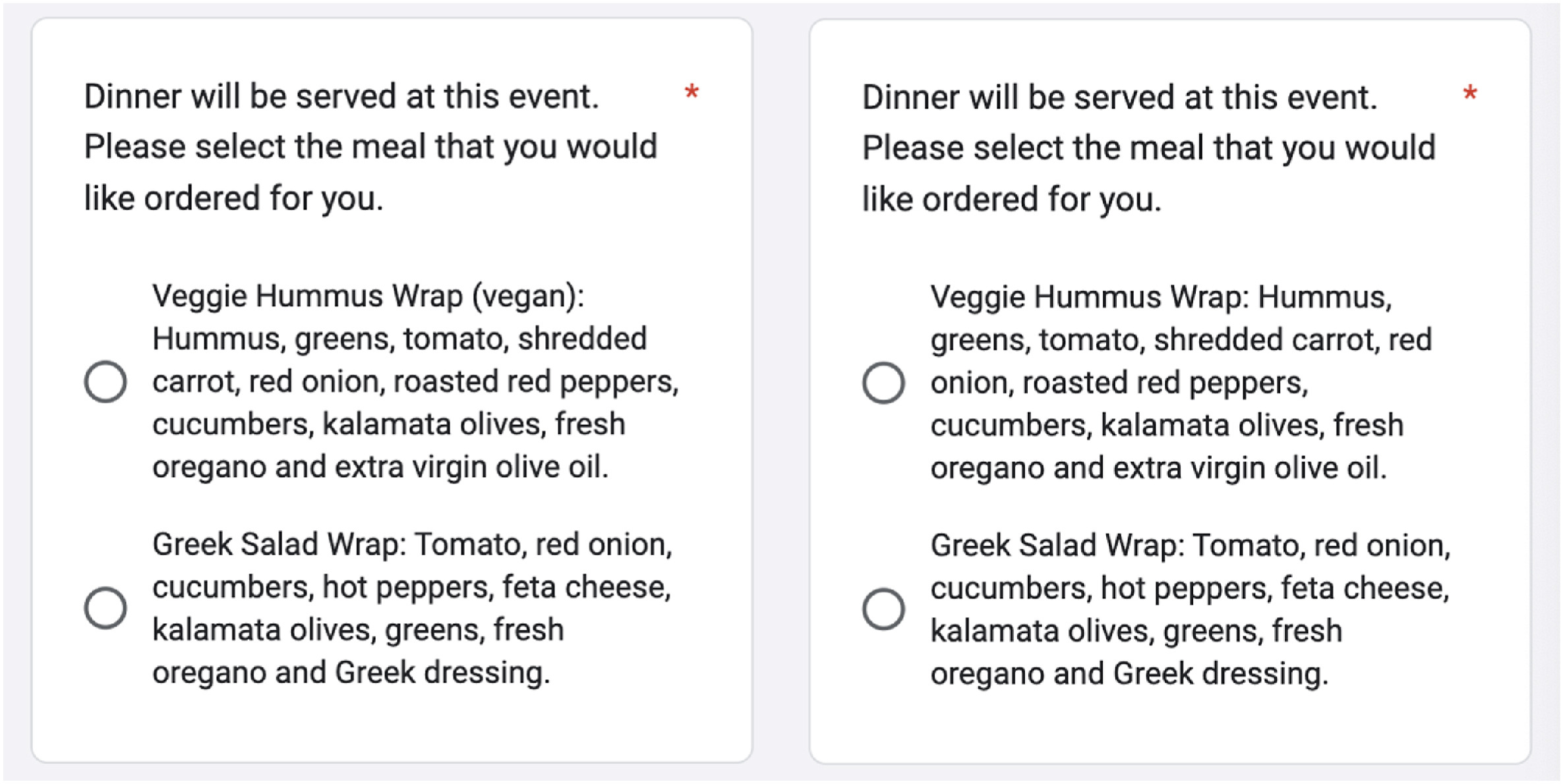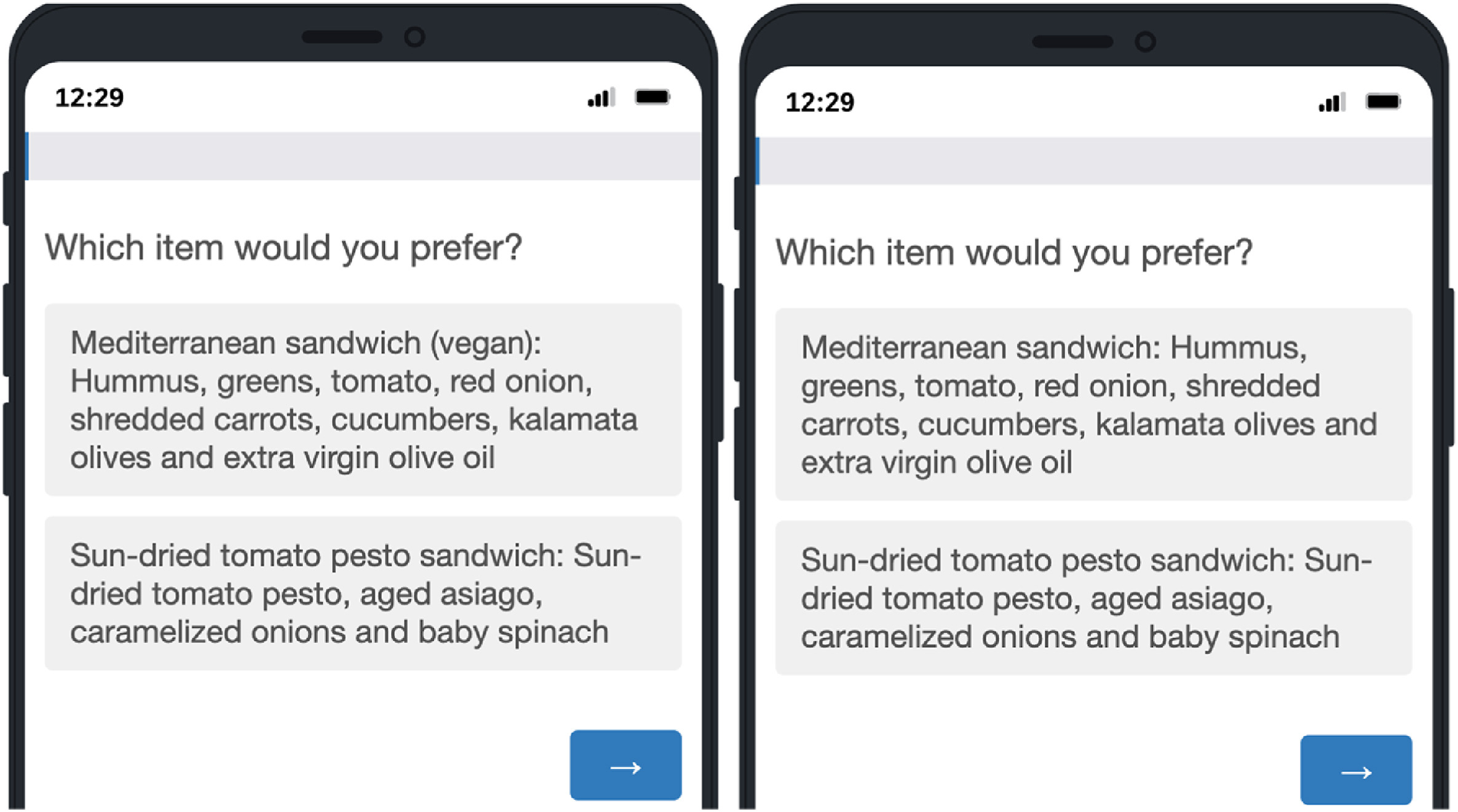Enter any supermarket in any country and you will find a vast array of products – sometimes even entire aisles – labelled as “vegetarian” or “vegan”. The use of these labels on food and beverage products has grown significantly over the past decade, with a 165% increase between 2012 and 2022.
However, while marketers might love these labels, fresh research from MIT (Massachusetts Institute of Technology) finds that they may be doing more harm than good.
The study, which will be published in the journal Appetite in September, investigated whether vegan and vegetarian labels on products have a negative impact on the likelihood of those products being chosen by consumers. Two tests were carried out, the first one with 160 consumers choosing between a vegetarian Greek salad and a vegan hummus wrap. The options were presented to them in a registration form for an event which was to include dinner. In some cases the dishes were highlighted as vegetarian or vegan; in others they were offered without labels (see image below).

The researchers found that when the options were labelled, like in the lefthand example above, most participants displayed a preference for the vegetarian option. However, when the words vegetarian and vegan were removed, most consumers went for the vegan wrap instead – indicating that the vegan labelling had a negative impact. This was confirmed by the researchers as statistically significant (p=.011).
The second part of the study was an online survey featuring 700 consumers. Participants were given five different hypothetical dinner choices, as follows:
- Choice 1: A vegetarian dish vs a dish that contains meat
- Choice 2: A vegan dish vs a dish that contains meat
- Choice 3: A vegetarian vs another vegetarian dish
- Choice 4: A vegan dish vs another vegan dish
- Choice 5: A vegan dish vs a vegetarian dish
For half of the participants in the study, the options were clearly labelled as “vegan” or “vegetarian". For the other half, there were no such labels and they were only able to see the name of the dish and its ingredients. See below for examples.

The result of this part of the study was that “similar to the field studies, labels had a negative impact on choices, however the effects are smaller (p<.001)” For example, while 36.7% of participants opted for the vegan option when it was not labelled “vegan”, only 33.4% chose it when it did carry a vegan label.
The difference was significantly bigger in the first study, when the choice was not hypothetical but related to an actual meal that the participants would be having. In that instance, 60.7% opted for the vegan option when it was not labelled as such, but only 36% of participants opted for the labelled vegan option.
The authors conclude that “The results suggest removing vegetarian and vegan labels from menus could help guide US consumers towards reduced consumption of animal products” and that “vegetarian and vegan labels effectively deter consumers from choosing these options. Removing these labels may provide an extremely simple and low-cost means for restaurants and other institutions to reduce their environmental impact, with minimal changes to menus, and without impacting consumers' freedom of choice.”
Read the full study here: https://www.sciencedirect.com/science/article/pii/S0195666323017476

